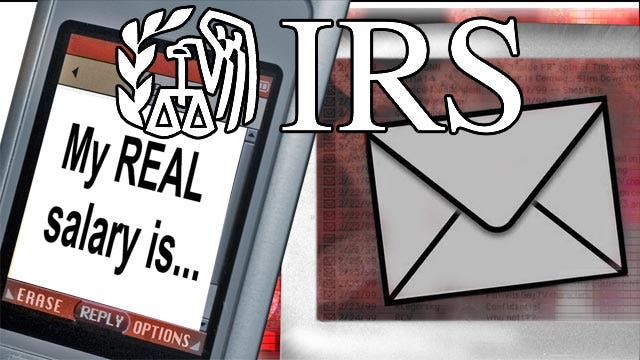The Internal Revenue Service believes it doesn’t need permission to root through emails, texts or other forms of electronic correspondence, according to recently released internal agency documents.
The documents, which were obtained through a Freedom of Information Act request by the American Civil Liberties Union, reveal that tax department agents have been operating under the assumption that they can bypass warrants. The ACLU claims this would in turn violate the Fourth Amendment.
According to a 2009 IRS employee handbook, though, the tax agency said the Fourth Amendment does not protect emails because Internet users don’t “have a reasonable expectation of privacy in such communications.”
A lawyer for the agency reiterated the policy in 2010. And the current online version of the IRS manual says that no warrant is required for emails that are stored by an Internet storage provider for more than 180 days.
"This is an affront not only to our system of checks and balances, but also to our fundamental right to privacy," Colorado Democratic Sen. Mark Udall said in a statement Thursday, adding that he wants Congress to overhaul the Electronic Communications Privacy Act.
“In the meantime, I urge the IRS to reconsider its overreach,” he said.
The ECPA is the federal law that governs law enforcement access to emails, and draws on what some say is an outdated distinction between email stored on a server for 180 days or less and email that has been opened.
Opened emailed and email older than six months does not require a warrant. Email that hasn’t been opened or is less than six months old does.
Last year, the ACLU looked into allegations that the IRS was reading people’s emails and checking their Facebook postings without permission. Privacy advocate groups, like the ACLU, say the government must obtain a search warrant based on probable cause but the IRS told agents in its criminal division they didn’t need to.
“This question is too important for the IRS not to be completely forthright with the American public,” ACLU lawyer Nathan Wessler said. “The IRS should tell the public whether it always gets a warrant to access email and other private communications in the course of criminal investigations. And if the agency does not get a warrant, it should change its policy to always require one.”
Calls to the IRS for comment were not immediately returned.





